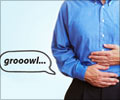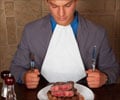Exposure to blue-enriched light immediately before and during an evening meal may promote hunger and alter the metabolism

"It was very interesting to observe that a single three-hour exposure to blue-enriched light in the evening acutely impacted hunger and glucose metabolism," said study co-author Ivy Cheung, a doctoral candidate in the Interdepartmental Neuroscience program at Northwestern University in Chicago, Illinois. "These results are important because they suggest that manipulating environmental light exposure for humans may represent a novel approach of influencing food intake patterns and metabolism."
The research abstract was published recently in an online supplement of the journal Sleep and will be presented Tuesday, June 3, in Minneapolis, Minnesota, at SLEEP 2014, the 28th annual meeting of the Associated Professional Sleep Societies LLC.
The study group comprised 10 healthy adults with regular sleep and eating schedules who received identical carbohydrate-rich isocaloric meals. They completed a four-day protocol under dim light conditions, which involved exposure to less than 20 lux during 16 hours awake and less than 3 lux during eight hours of sleep. On day three they were exposed to three hours of 260 lux, blue-enriched light starting 10.5 hours after waking up, and the effects were compared with dim light exposure on day two.
Cheung noted that more research is needed to determine the mechanisms of action involved in the relationship between light exposure, hunger and metabolism.
Advertisement










